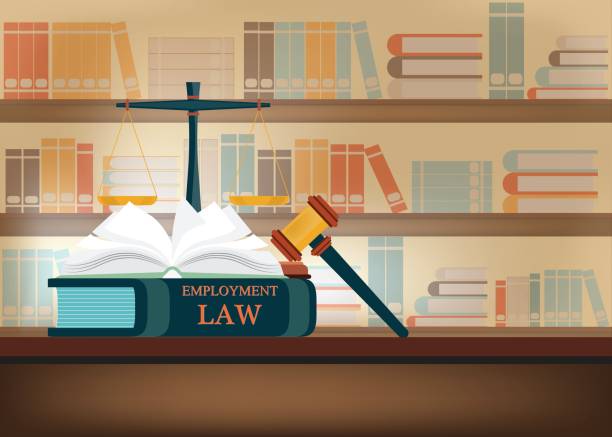New York City Earned Safe and Sick Time Act
In March of 2021, former Governor Andrew Cuomo amended New York Labor Law to mandate up to four hours of paid COVID-19 vaccine leave for all New York employees. On November 23, 2021, the New York City Council expanded the Earned Safe and Sick Time Act to require private employers to provide parents with four hours of paid leave for their child to receive the COVID-19 vaccine. The law went into effect 30 days later. The leave can be used to obtain the vaccination itself or to care for a child that is suffering from vaccine side effects. The leave can be used for each of the employee’s children and for each dose received.
Covered employees may be required to provide a maximum of seven days’ notice to their employer prior to using the COVID-19 child vaccination leave if the need for leave is foreseeable. Employees may also be required to provide documentation of their child’s vaccination.
Employers are prohibited from discriminating against or retaliating against an employee that takes COVID-19 child vaccination leave. They are also prohibited from requiring an employee who takes leave to make up for the time they use and from requiring the employee to find coverage for the time they will be on leave.
If an employee does not receive pay for the leave they take, they may be entitled to the remedy of the greater of three times the wages that have not been paid or $250. If they are denied leave completely, they may be entitled to a remedy of $500.
New York City Human Rights Law
On December 15, 2021, by a 41-7 vote, the New York City Council passed a bill that will require all employers in the five boroughs that have four or more employees, including independent contractors, to include a salary range for all advertisements or postings for jobs, promotions, or transfer opportunities.. The bill officially became law on January 15 when Mayor Eric Adams declined to either sign it or veto it.
New York City joined other jurisdictions that have passed similar salary disclosure statutes, including California, Colorado, Connecticut, Maryland, Nevada, Rhode Island, Washington State, as well as Cincinnati and Toledo, Ohio.
Failure to post a salary range will now be considered a discriminatory practice and could lead to hefty fines for each violation. The posted range must include the lowest amount to the highest amount that the employer believes “in good faith” that they would be paying for the vacant position. There is an exception to this amendment for temporary positions at temporary employment firms.
Employers must begin posting salary ranges as of May 15.
New York Sick Leave
On December 22, 2021, the NYS Department of Labor published the final regulations to the New York State Paid Sick Leave Law. The regulations cover the following:
- How to determine employer size: employee count includes employees nationwide.
- The limit on the number of hours an employee can carry over to the following calendar year: there is no limit on the number of hours, even when leave is frontloaded.
- Unused sick leave options: Employers have the option to 1) pay their employees for unused sick leave or allow unused sick leave to carryover or 2) only allow employees to carry over unused sick leave.
- Attestation for absences of three or more days: a template will be published for these types of attestations.
New York Paid Family Leave: Intermittent Leave
The maximum number of intermittent leave days an employee may take is determined by taking the average amount of days an employee works per week and multiplying this number by 12. Previously, this number was capped at 60 days for employees who work an average of five or more days per week.
In October, an amendment to the law eliminated the cap, allowing employees who work more than an average of five days per week additional days of intermittent leave. Therefore, employees who work an average of 6 days per week now receive 72 days of leave, while employees that work an average of 7 days receive 84 days.
The amendment came into effect on January 1, 2022.
New York Paid Family Leave: Weekly Benefits.
Under New York’s Paid Family Leave law, eligible employees who take leave will receive the lesser of either 67% of their weekly pay, or 67% of the Statewide Average Weekly Wage. As of 2022, the Statewide Average Weekly Wage was increased to $1,594.57, which makes the maximum weekly benefit amount $1,068.36, an increase of about 10% from 2021. The employee payroll contribution has also been adjusted to compensate for the increase and is now capped at $423.71 annually.
New York Paid Family Leave: Family Member
New York’s Paid Family Leave provides 12 weeks of paid time off per year that can be used for a variety of reasons, including caring for an ill family member.
On November 1, 2021, New York Governor Hochul signed a bill to expand the law’s definition of “family member” to include siblings. Eligible employees will be able to use Paid Family Leave in order to care for a sibling with a serious illness or medical condition. Under the expansion “sibling” includes a biological sibling, adopted sibling, half sibling or step sibling.
The expansion comes into effect on January 1, 2023.
Conclusion
New York employment law has seen many recent changes, most of which have already come into effect. Employers may want to reevaluate their practices with these changes in mind in order to ensure that they are complying with recent amendments and expansions.

